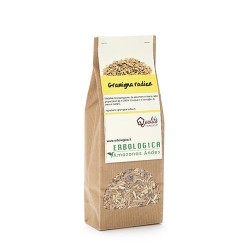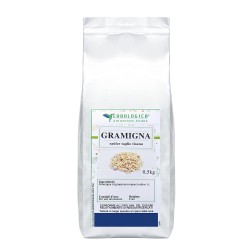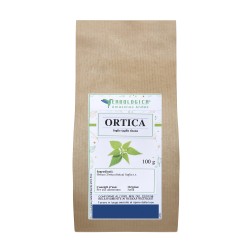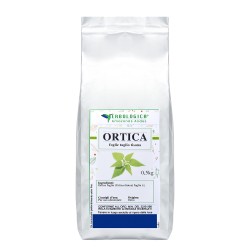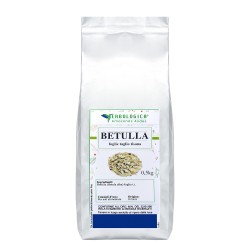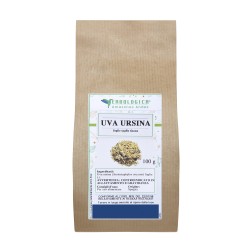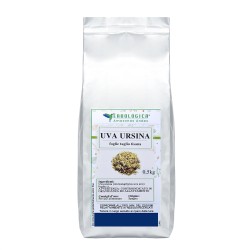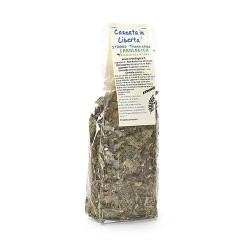
Tisane ed erbe per le vie urinarie: supporto naturale al drenaggio
Le piante officinali più utilizzate per favorire la funzionalità urinaria e l’eliminazione dei liquidi
Il benessere delle vie urinarie è spesso legato alle abitudini quotidiane, all’idratazione e allo stile di vita.
Periodi di stress, alimentazione poco equilibrata o una scarsa assunzione di acqua possono influire sulla naturale eliminazione dei liquidi.
Per questo molte persone scelgono di integrare tisane ed erbe officinali nella propria routine, come supporto naturale e costante.
Drenaggio dei liquidi e funzionalità urinaria
Favorire il drenaggio dei liquidi è uno dei primi aspetti da considerare quando si parla di benessere delle vie urinarie.
L’utilizzo regolare di alcune piante officinali, insieme a una corretta idratazione, può sostenere in modo naturale la funzionalità urinaria e contribuire a una sensazione di leggerezza generale.
Betulla foglie
Le foglie di betulla sono tradizionalmente utilizzate nelle tisane dedicate al drenaggio dei liquidi.
Sono apprezzate per l’uso quotidiano e per la loro presenza in preparazioni semplici, facilmente integrabili nella routine giornaliera.
Ortica pianta
L’ortica è una delle piante officinali più conosciute quando si parla di funzionalità urinaria.
Utilizzata sotto forma di tisana, viene spesso scelta come base per un supporto naturale costante, soprattutto nei periodi di maggiore ritenzione dei liquidi.
Gramigna radice
La radice di gramigna è storicamente legata al benessere delle vie urinarie.
Viene utilizzata in tisana all’interno di percorsi erboristici orientati al drenaggio e all’eliminazione dei liquidi, grazie alla possibilità di un impiego regolare.
Nel nostro shop online trovi betulla foglie tisana, ortica pianta tisana e gramigna radice tisana, disponibili nei formati 100 g – 500 g – 1 kg, confezionate in atmosfera protettiva o sottovuoto per preservare i principi attivi naturalmente contenuti nella pianta.
Diuresi naturale e sostegno quotidiano
Accanto al drenaggio, alcune piante officinali vengono tradizionalmente utilizzate per sostenere la diuresi naturale.
In questo ambito, la costanza è un elemento chiave: l’integrazione regolare, senza eccessi, permette di accompagnare in modo equilibrato le normali funzioni dell’organismo.
Tarassaco radice
La radice di tarassaco è apprezzata per l’utilizzo all’interno di percorsi erboristici dedicati all’eliminazione dei liquidi.
In forma di polvere, rappresenta una soluzione pratica per chi preferisce un’alternativa alla tisana.
Pilosella pianta
La pilosella è una delle piante più note per il supporto alla diuresi.
Utilizzata in polvere, viene scelta soprattutto nei periodi in cui si avverte una maggiore sensazione di ristagno dei liquidi.
Parietaria foglie
Le foglie di parietaria sono tradizionalmente impiegate nelle tisane per il benessere delle vie urinarie.
È una pianta semplice, adatta a un utilizzo regolare, spesso inserita in percorsi naturali orientati alla funzionalità urinaria.
Nel catalogo Erbologica sono disponibili tarassaco radice in polvere, pilosella pianta in polvere e parietaria foglie taglio tisana nei formati 100 g – 500 g – 1 kg, confezionati in atmosfera protettiva per preservare i principi attivi della pianta.
Piante tradizionalmente utilizzate per le vie urinarie
Nel mondo dell’erboristeria esistono piante che, per tradizione, vengono associate al benessere delle vie urinarie.
Il loro utilizzo è generalmente consigliato in modo mirato e non continuativo, all’interno di una routine equilibrata.
Uva ursina
L’uva ursina è una pianta storicamente utilizzata per le vie urinarie.
Può essere impiegata sotto forma di tisana o in polvere ed è generalmente inserita in percorsi brevi e consapevoli, alternandola ad altre piante più delicate.
Verga d’oro
La verga d’oro è apprezzata per il supporto naturale alla funzionalità urinaria.
Utilizzata in tisana, rappresenta un’opzione più delicata, adatta anche a chi cerca un sostegno prolungato nel tempo.
Ginepro bacche
Le bacche di ginepro sono utilizzate nella tradizione erboristica come supporto alle vie urinarie.
Il loro impiego è generalmente moderato e inserito all’interno di miscele o percorsi specifici.
Per approfondire un tema correlato, puoi leggere anche "Combattere naturalmente i calcoli delle vie urinarie".
Nel nostro shop trovi uva ursina in foglie per tisana o in polvere, verga d’oro taglio tisana e ginepro in bacche intere o in polvere, disponibili nei formati 100 g – 500 g – 1 kg.
Tisane composte e uso consapevole
Le tisane composte rappresentano una soluzione pratica per chi desidera un supporto completo, grazie alla combinazione equilibrata di più piante officinali.
In questo caso è importante conoscere sempre gli ingredienti presenti nella miscela.
Tisana diuretica Erbologica per drenaggio e benessere urinario
Miscela a base di:
Betulla foglie, sostiene il drenaggio dei liquidi
Ortosiphon, favorisce la diuresi e la funzionalità renale
Equiseto, ricco di minerali e utile per l’equilibrio idrico
Ononide, supporta la funzione urinaria fisiologica
Centella, favorisce la circolazione e contribuisce a una naturale sensazione di leggerezza
Parietaria tisana composta
Miscela a base di: Gramigna radice, Parietaria sommità, Ciliegio peduncoli, Equiseto sommità, Mais barbe, Uva ursina foglie, Betulla foglie, Eucalipto foglie, Finocchio semi, Karkadè fiori, Menta piperita sommità, Sambuco fiori
Le tisane composte Erbologica sono disponibili nel nostro shop online nei formati 500 g, le erbe sono confezionate in atmosfera protettiva o sottovuoto e sono completamente naturali e NO OGM.
Domande frequenti
Le tisane per le vie urinarie si possono bere tutti i giorni?
Sì, molte tisane a base di erbe delicate possono essere inserite nella routine quotidiana, sempre con buon senso e alternanza.
Meglio scegliere erbe singole o tisane composte?
Dipende dalle esigenze personali: le erbe singole permettono un utilizzo mirato, mentre le tisane composte offrono un supporto più completo.
Quanto tempo serve per notare un beneficio?
L’approccio naturale richiede costanza. I tempi possono variare in base allo stile di vita e all’uso regolare delle erbe.
È importante bere acqua insieme alle tisane?
Sì, una corretta idratazione è fondamentale per sostenere la funzionalità urinaria e accompagnare l’uso delle tisane.
Contenuto esclusivo per erbologica.it – aggiornato dicembre 2025


